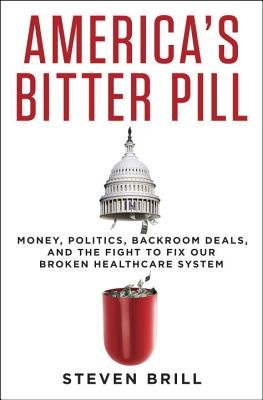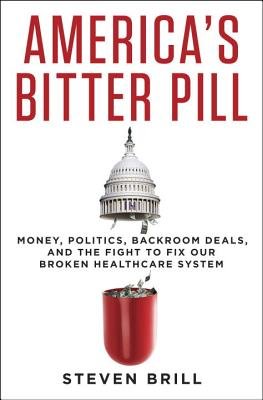 I’m sure a lot of you have Steven Brill’s “America’s Bitter Pill” on your bedside table by now – I’m not going to try to recap it here.
I’m sure a lot of you have Steven Brill’s “America’s Bitter Pill” on your bedside table by now – I’m not going to try to recap it here.
But I did want to share a few links to some of the more thoughtful (or provocative) articles and reviews, representing critics on both the left and right. I also wanted to draw your attention to another recent book providing a conservative perspective on Health Policy.
- Here’s a Sunday New York Times book review by Zephyr Teachout.
- Here’s Malcolm Gladwell in the New Yorker.
- And Peter Orszag (who was in the Obama administration when the bill was being written and appears in the book) at Bloomberg View writes about what he thinks Brill got wrong.
- Avik Roy at Forbes has a conservative perspective.
The second book (and I should say that while I have a copy, I loaned it to a colleague before I read it myself…) is by the Washington Examiner‘s commentary editor, Philip Klein, who looks at the options and thoughts on the right in “Overcoming Obamacare: Three Approaches to Reversing The Government Takeover of Health Care.” It hasn’t been as widely reviewed as Brill’s book but Aaron Carroll gives it an interesting write-up in the Incidental Economist blog.









